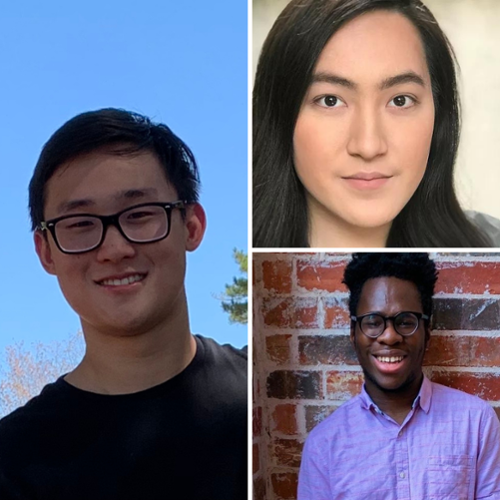Computational Neuroscience Fellowship
Overview
Emory College of Arts and Sciences Computational Neuroscience Fellowship supports two Emory undergraduate students per year for an intensive academic year and one summer to obtain training and perform research in Computational Neuroscience. The total annual stipend is $6,000, of which $1,500 are dedicated towards conference travel and $1,500 are dedicated for summer research housing.
Training Program
Besides lab research, the training program also includes participation in the relevant journal club(s), a fall weekend retreat (pandemic-permitting), and required classes.
Research: The expected weekly time commitment to lab research will be a minimum of 10 hours during the academic year. During the summer, a full-time research effort is expected.
Required Classes: Students will have to complete a set of 2 required classes and 1 elective. The required classes are NBB301/BIO360 (Introduction to Neuroscience) and NBB301L. The elective is taken out of a catalog of classes including BIO450 (Computational Neuroscience), PHYS/BIOL212 (Computational Modeling in the Sciences) and QTM355 (Intro to Time Series Analysis). It is anticipated that at the time of obtaining the Computational Neuroscience scholarship a student will already have completed or be enrolled in one or several of these classes.
2021 Fellowship Students

[Left to Right: Joseph Song (Dieter Jaegar), Camilla Li (Ilya Nemenman), Obinna Megwa (Astrid Prinz)]
Joseph Song (Dietar Jaegar):
Currently, I’m a third year studying chemistry at Emory University but have a research interest in neuroscience. Outside of academics and research, I’m involved in volunteering at the Children’s hospital and refugee communities, leading multiple service clubs on campus, and working out. As an undergraduate researcher in Jaeger's lab, my research focus is understanding how the basal ganglia regulates locomotion and limb movement in mice. Once there is a better understanding of how stimulation of the basal ganglia can alter movement in mice, I’m interested in improving movement in Parkinsonian mice through deep brain stimulation. Receiving the computational neuroscience fellowship has been a privilege because I’ve been given resources, fundings, and connections to invest in my research project that I’m passionately committed to. Being a recipient of this fellowship motivates me to continue the long journey of research and I’m excited to see opportunities continue to arise out throughout the progress.
Obinna Megwa (Astrid Prinz):